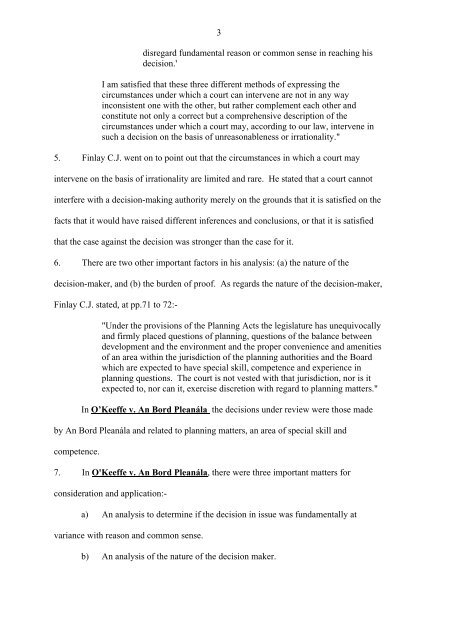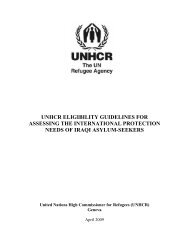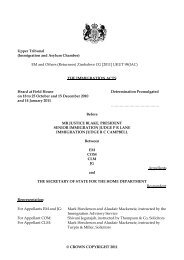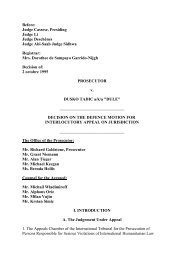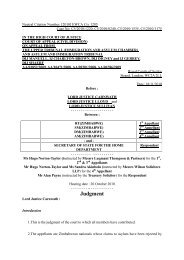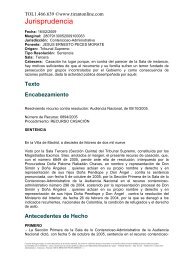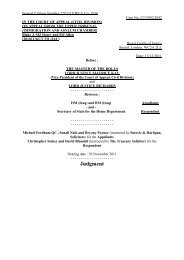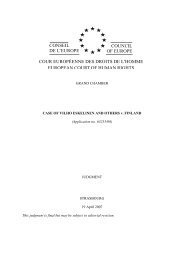Meadows v MJELR IESC 3.pdf - European Database of Asylum Law
Meadows v MJELR IESC 3.pdf - European Database of Asylum Law
Meadows v MJELR IESC 3.pdf - European Database of Asylum Law
Create successful ePaper yourself
Turn your PDF publications into a flip-book with our unique Google optimized e-Paper software.
3disregard fundamental reason or common sense in reaching hisdecision.'I am satisfied that these three different methods <strong>of</strong> expressing thecircumstances under which a court can intervene are not in any wayinconsistent one with the other, but rather complement each other andconstitute not only a correct but a comprehensive description <strong>of</strong> thecircumstances under which a court may, according to our law, intervene insuch a decision on the basis <strong>of</strong> unreasonableness or irrationality."5. Finlay C.J. went on to point out that the circumstances in which a court mayintervene on the basis <strong>of</strong> irrationality are limited and rare. He stated that a court cannotinterfere with a decision-making authority merely on the grounds that it is satisfied on thefacts that it would have raised different inferences and conclusions, or that it is satisfiedthat the case against the decision was stronger than the case for it.6. There are two other important factors in his analysis: (a) the nature <strong>of</strong> thedecision-maker, and (b) the burden <strong>of</strong> pro<strong>of</strong>. As regards the nature <strong>of</strong> the decision-maker,Finlay C.J. stated, at pp.71 to 72:-"Under the provisions <strong>of</strong> the Planning Acts the legislature has unequivocallyand firmly placed questions <strong>of</strong> planning, questions <strong>of</strong> the balance betweendevelopment and the environment and the proper convenience and amenities<strong>of</strong> an area within the jurisdiction <strong>of</strong> the planning authorities and the Boardwhich are expected to have special skill, competence and experience inplanning questions. The court is not vested with that jurisdiction, nor is itexpected to, nor can it, exercise discretion with regard to planning matters."In O’Keeffe v. An Bord Pleanála the decisions under review were those madeby An Bord Pleanála and related to planning matters, an area <strong>of</strong> special skill andcompetence.7. In O'Keeffe v. An Bord Pleanála, there were three important matters forconsideration and application:-a) An analysis to determine if the decision in issue was fundamentally atvariance with reason and common sense.b) An analysis <strong>of</strong> the nature <strong>of</strong> the decision maker.


